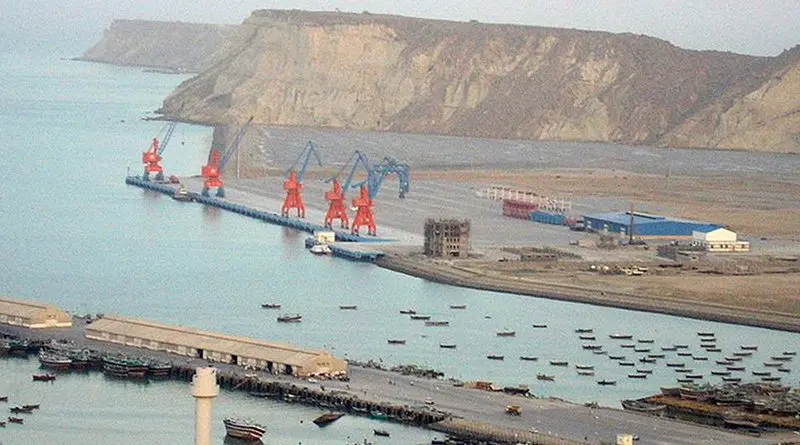Pakistan: Resetting Priorities And Rebuilding Foundations – OpEd
One year after the horrendous attack on children studying at a military-run school in Peshawar, capital of Khyber Pakhtunkhwa province of Pakistan, the air in the terror-stricken country smells much different. The people stand much more resolved in the fight against terror and the Taliban – once the focal point of a national debate over whether they were good or bad – are hardly finding any sympathizers.
Though it sadly took the killing of over 135 children to unify the national discourse against terrorism, critical decisions by the government and the Pakistan Army have resulted in an era of relative peace across the country. The military finally decided to act in North Waziristan Agency (NWA), one of the seven ungoverned Tribal Areas in the north-west and purported home to the notorious Haqqani Network. Since January this year, security forces have reclaimed large swathes of NWA and declared most of the area clear of terrorists. Changes took place in the south as well, with an indiscriminate crackdown by Pakistan Rangers in Karachi ending the reign of murderers, extortionists, land grabbers and kidnappers in the country’s financial capital.
Dividends of peace
The edgy calm has so far made Pakistani’s heave a sigh of relief and the dividends of peace are starting to sprout. For one, the exodus of citizens from a criminal-infested Karachi to other parts of the country has ceased for now, and business activity in the economic hub has started to come alive, again. Traders are feeling positive and have put their weight behind the security forces, though political bickering over the jurisdiction of Rangers continue.
The real estate sector, which saw prices deflating for months, has started seeing signs of hope. Zameen.com, which claims to be the leading property portal in the country, said prices in Karachi had risen by 22% in the past twelve months.
Besides the positivity in the local investment sentiment, international investors have also taken note of the improving situation. China, which has been interested in developing the south-western port city of Gwadar, has finally taken a giant leap by announcing to jointly build the China-Pakistan Economic Corridor (CPEC) that will improve and extend the existing Karakoram Highway from China up until Gwadar. The $46 billion project, China’s largest overseas outing, is expected to help overhaul Pakistan’s logistic, road and rail network and bring affluence to the economically marginalized Balochistan province. It will also help Pakistan improve its energy production and rid the country of chronic power outages.
Swiss hotelier Mӧvenpick recently signed a deal to manage and operate a 361-key hospitality establishment in the country’s capital, Islamabad, a move being touted as an investment trailblazer.
Zameen.com CEO Zeeshan Ali Khan said the international brand was likely to attract a host of other investors to the Islamabad. “Property values are likely to go up. Commercial prospects of an area around such structures are always bright and this is what we are going to see in Islamabad’s F/8, G/8 and F/7 sectors as the hotel takes shape,” he added.
The long-stalled Turkmenistan, Afghanistan, Pakistan and India (TAPI) energy pipeline project has finally gotten through and will cement Pakistan’s position in the energy corridor that connects India with the Central Asian state.
Also under development in Karachi is Crescent Bay, a real estate project by Dubai’s real estate giant Emaar Properties. The 75-acre development, expected to cost over $2 billion when complete, will have numerous high and mid-rise structures for residential and commercial usage.
Fringe benefits
But the rewards are likely to travel much farther than projects directly related to CPEC. The improvement of the Karakoram Highway up north has already added to the tourist numbers in distant natural wonders like Hunza and Skardu, which once had more foreign than local visitors. Sarfraz, who runs a camping service in Hunza’s Duikar valley, said he had received much more visitors this summer than in the previous year.
“Better roads have helped the region’s tourism industry. This year we had an unprecedented number of visitors from Lahore and Karachi during the Eid holidays. Business was more than expected,” he smiled. “There even were days when there wasn’t a single vacant hotel room available in all of Karimabad,” Sarfraz added, pointing down to Hunza’s main town up from the Eagle’s Nest.
A new multimillion-dollar-tunnel built by China along the Karakoram Highway close to Hunza is set to add to the seasonal revenue of people like Sarfraz by boosting visitor numbers from China.
With a business-minded government at the helm of affairs, we can expect the country pushing ahead with its initiatives to restore total peace, a requisite for ensuring domestic and international investment. The country is also banking on playing up its strategic location in the region by aiming at fostering stronger ties with Russia and Iran, especially with Tehran expected to break free of international sanctions in the coming year.
Pakistan will need sustained efforts by the government, its military and its people to ensure a secure environment for an able development of its economy and future. It will also need a reformation of educational syllabi to make the society more progressive and open to new ideas and change, besides fighting traces of radicalization that still plague the people.
The country’s commitment is for it to know and the world to find out.
*Sualiha Nazar is a freelance journalist who also contributes in The Diplomat and The Foreign Policy.

